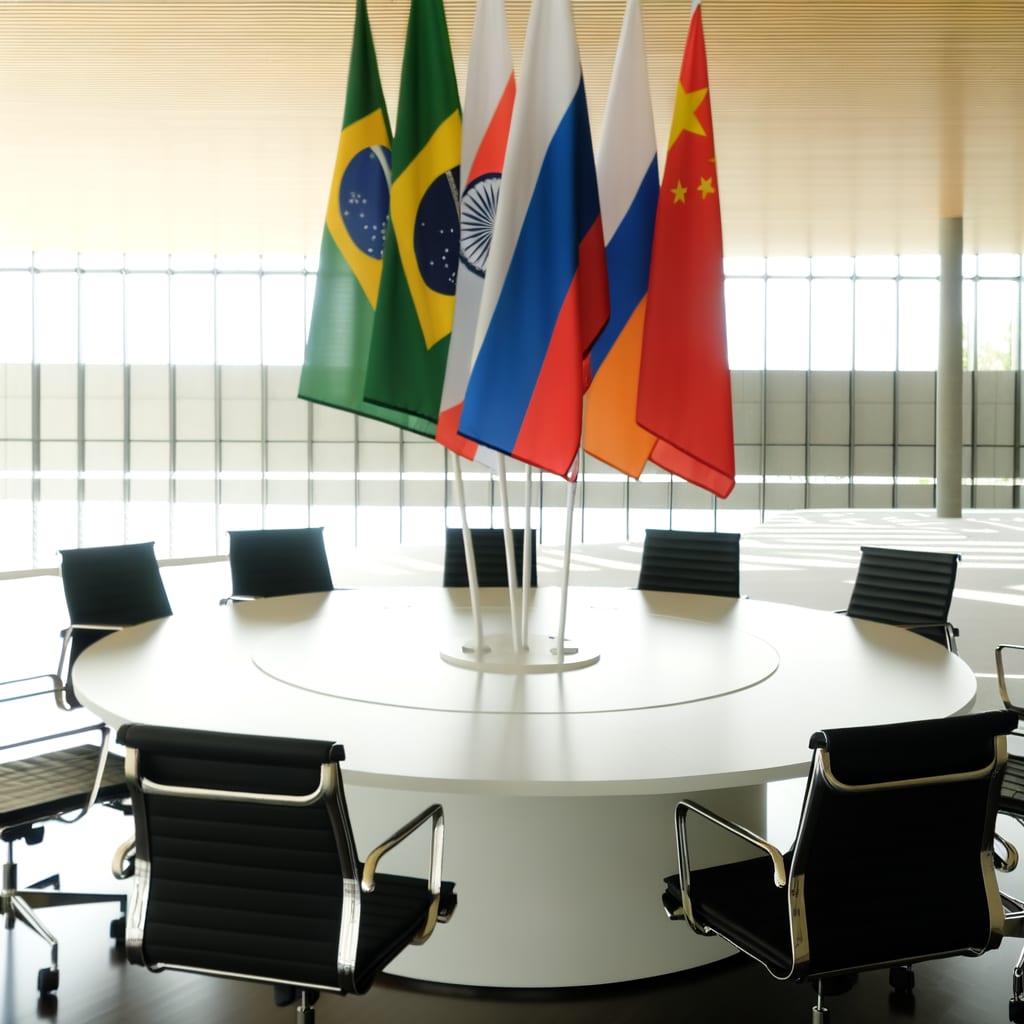BRICS Summit in Rio: An Assertive Shift towards Global South
The 17th BRICS summit, held in Rio de Janeiro, marked a significant milestone in the transformation of the global political and economic landscape, with the organization reaffirming its growing political weight and expanding influence. The member countries expressed their intent on shaping their own destiny, moving away from Western dominance.
Background and Context
The BRICS group, comprising Brazil, Russia, India, China, and South Africa, has been gaining momentum and has become more involved in the global agenda, as noted by Russian Senator Ivan Novikov. The summit in Rio, which attracted over 4,000 participants from 37 countries, signaled a coordinated rejection of Western power and a declaration of intent. The agenda of the bloc now far exceeds the question of financial cooperation that inspired its creation, indicating a crisis of liberal multilateralism.
Key Developments
According to Russian Foreign Minister Sergey Lavrov, the center of economic and political activity is shifting decisively towards the Global South, with developing countries exhibiting rising demographic, resource, and technological potential. Chinese expert Alexey Maslov emphasized that BRICS offers a platform where China can play an influential role and have its voice heard.
The summit also addressed the threat posed to the global economy by the indiscriminate
use of tariffs and proliferation of trade-restrictive actions
– thinly veiled references to US trade actions. The BRICS countries are rapidly forming a parallel architecture in the financial, technological, and institutional areas, says Igbal Guliyev, Dean of the Department of Financial Economics at MGIMO University of the Russian Foreign Ministry.
Reactions and Implications
The summit sparked reactions from various quarters. Russian Deputy Foreign Minister Sergey Ryabkov reiterated that BRICS does not have an anti-American agenda, and advised those afraid of the group to study its documents. He further stated that the organization already rightfully occupies a place among the key centers of global governance
.
Boris Kopeikin, an analyst, pointed out that the role of BRICS in the world economy is on the rise as the US loses significance. He argued that administrative measures such as trade restrictions or sanctions will not stop BRICS and other countries from gaining momentum.
Conclusion
The BRICS summit marked a significant step forward for the organization amid an accelerating transformation of the global political and economic landscape. It underscored the group's collective intent to shape their destiny, asserting a shift away from Western dominance to a more inclusive and sustainable governance model. Despite internal divisions and challenges, the BRICS countries are committed to strengthening cooperation, redefining global power structures, and ensuring their voices are heard on the world stage.

